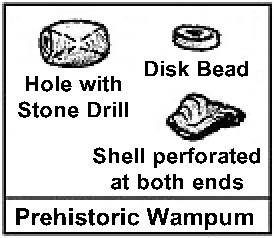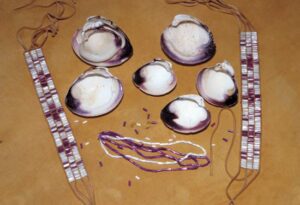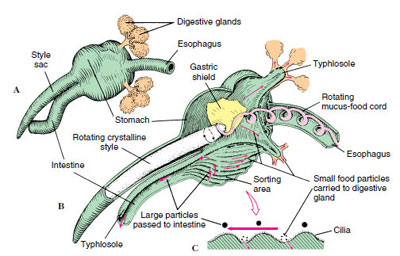
Barnegat Bay History
Wampum
Wampum is a small and short tubular shell bead. The beads were strung into strings or woven into belts. Wampum are traditional, sacred shell beads of Eastern Woodlands tribes.
The word “Wampum” comes from the Narragansett word (short for wampumpeag) meaning ‘white shell beads’.
 Before contact with European settlers, Wampum was primarily used for ceremonial purposes or for gift exchanges, (Prehistoric Wampum) hence, this was not “Indian Money”.
Before contact with European settlers, Wampum was primarily used for ceremonial purposes or for gift exchanges, (Prehistoric Wampum) hence, this was not “Indian Money”.
These shell beads were larger and relatively uncommon because drilling the material was difficult with stone drill bits.
Shell beads were either disk shaped, or barrel shaped, usually made from the whelk’s spiraling inner whorl (columella)
 In the early 17th century wampum came to be used as money in trade.
In the early 17th century wampum came to be used as money in trade.
The early Dutch settlers recognized the value of the beads to the natives. They introduced contemporary technology into its production and manufactured Wampum themselves.
The exchange of Wampum became an important part of diplomatic protocol whenever Indians and Europeans concluded a treaty or assembled for other councils.
Wampum beads are made in two colors:
Fun Facts
The Latin name Mercenaria mercenaria is derived from a word that means wages.
(merces mercedis : pay, reward, recompense, compensation)
The name “quahog” comes from the Indian name “poquauhock,” meaning horse fish
Delaware River
The Europeans first named the river in honor of Sir Thomas West, Lord de la Warr, the first colonial governor of Virginia (not after the Native American tribe)
Credits
Used with permission from Tara Prindle, nativetech.org
Clam, whelk and wampum image by Stephen Lang Photography




